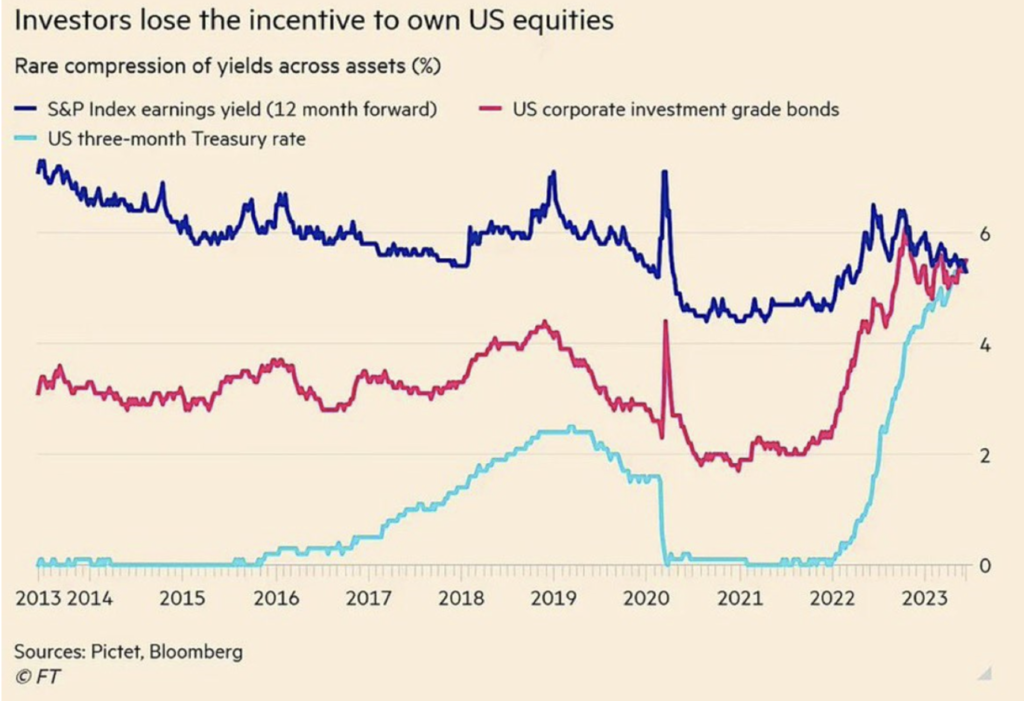Warren Buffett is an old man.
He’s pretty smart.
And he’s an excellent investor, which has had the side effect of making him very rich.
His advice is simple:
If you don’t feel comfortable making a rough estimate of the asset’s future earnings, just forget it and move on. No one has the ability to evaluate every investment possibility. But omniscience isn’t necessary; you only need to understand the actions you undertake.
But his advice is difficult to execute on
And that’s the point. You can’t know everything about every business. If you are investing in an area where the value of the investment is not clear (to you), you probably shouldn’t be investing in it.
And as a result of this Warren is not quick to adopt the “newest thing” when it comes to investing.
Sometimes he’s seen as a chump, but over time the scales tip back in his favour.
Investment Fads Come & Go
There is a lot of chatter around the stock market.
An infinite amount of content is published daily to gain your attention.
Including this article
I love this WealthSimple commercial. It summarizes the situation perfectly.
It makes you think
- Am I missing out?
- Are there things I should be doing that I am not?
- My friend says they are doing this, should I be doing that too?
The financial media generates revenue from advertisements.
They try to scare you. It generates more clicks.
“The S&P fell by $27 due to fears of rising interest rates”
“Gold spiked as a result of concerns over the national debt”
It’s exhausting to listen to.
How is Value Determined?
From a financial perspective, defining value is as simple.
How much money do I put in today? How much do I get in the future?
That’s it.
But underneath those simple questions are much more difficult ones that must be answered.
- How likely is it that the investment will generate your predicted profits?
- How does this opportunity compare with other, easier, opportunities?
- How likely is it that the profits from this investment will actually be paid to me?
1. How likely is it that the investment will generate your predicted profits
For a biotech company, it can be difficult to determine whether these profits will materialize or not.
It would be much easier to determine the future profits for a company selling diapers and baby formula.
Re-hashing the original quote at the beginning of this article:
If you don’t feel comfortable making a rough estimate of the asset’s future earnings, just forget it and move on.
2. How does this opportunity compare with other, easier, opportunities
If 1-year government bonds or GICs pay 10%, and your investment is expected to return 10% there’s not much to get excited about.
But if GICs are paying 2%, and you believe the investment will generate 10%, it’s a worthwhile investment to consider.

3. How likely is it that the profits from this investment will actually be paid to me
If the management is going to take the profits and pay themselves big salaries and spend a bunch of money buying unattractive businesses your projections don’t matter at all.
You will not receive any benefit from your efforts and correct evaluation of the business.
You have to ensure, or at least have a reasonable expectation, that the profits of the business will flow back to you.
How to spot a great investment opportunity.
By now I’m sure you can see that while Warren’s advice is simple, it’s much harder in practice to execute on, especially with a publicly traded company.
Even if you have the ability to evaluate the information, there can be roadblocks that can stop you as a shareholder from receiving those benefits.
You need to have knowledge of the industry you’re investing in and ideally control of how the profits are allocated.
The guy who runs the local equipment rental business knows the value of purchasing another Skyjack.
He can actually execute this strategy. He knows the industry inside and out.
I have no clue what the return on investment would be renting a Skyjack. The best opportunity in the world could come knocking at my door and I’d have no idea.
But this local business owner would have the ability to evaluate the return on investment.
- How much does a new Skyjack cost?
- How quickly does it deteriorate in value?
- How much can I rent it for?
- Should I be buying used equipment or new equipment?
- If I buy a used piece of equipment, how can I know if it’s in good condition?
While Buffett says all that’s required is a knowledge of what $$ will be returned to you. Which is true. It typically requires specialized knowledge to be able to pencil in those numbers.
Assuming you can get an answer to those kinds of questions – investing really is that simple.
